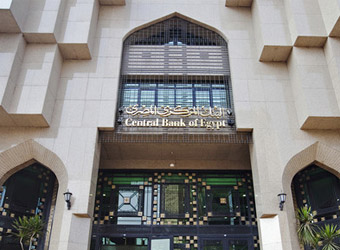Egypt’s central bank kept on Thursday its key interest rates unchanged at a meeting of its monetary policy committee, it said in a statement, after it had raised them by a total of 400 basis points in the past two meetings.
The bank has raised key interest rates by a total of 700 basis points, or 7 percentage points, since it floated the pound in November as part of a $12 billion International Monetary Fund loan programme aimed at boosting the economy.
It kept the overnight deposit rate at 18.75 percent and the overnight lending rate at 19.75 percent on Thursday, in line with the expectations of all 11 economists polled by Reuters this week.
“It is apparent from the latest economic indicators, which show a rise in economic growth and strong secondary effects of supply shocks resulting from implementing economic reforms, that tightening monetary policy was necessary to achieve targeted inflation rates in the medium term,” the bank said.
Inflation has been climbing up since the float in November. Key inflation rates soared to multi-decade highs last week on the back of energy subsidy cuts agreed with the IMF.
The government in June hiked fuel prices by up to 50 percent and electricity prices by up to 42 percent in an attempt to narrow its gaping budget deficit.
Annual urban inflation for July hit a high of 33.0 percent from 29.8 percent in June, the highest since June 1986, and the second highest since Reuters data began in 1958.
Core inflation, which strips out volatile items such as food, rose to 35.26 percent year-on-year in July from 31.95 percent in June, the highest level since at least 2005, the oldest available central bank records.
With growth in GDP reaching 4.9 percent in the last quarter, unemployment falling and consumption slowing, the central bank is predicting inflation will fall.
“The latest economic developments since the previous meeting were in line with the central bank’s predictions. Therefore, the monetary policy committee sees that interest rates are currently in line with targeted inflation of 13 percent (+/- 3 percent) in the fourth quarter of 2018 and single digits after that,” it said.
Egypt’s economic growth has deteriorated since a 2011 uprising drove tourists and foreign investors away, draining foreign reserves and putting pressure on President Abdel Fattah al-Sisi who has to maintain support amid the tough economic reforms.
Source: Reuters
